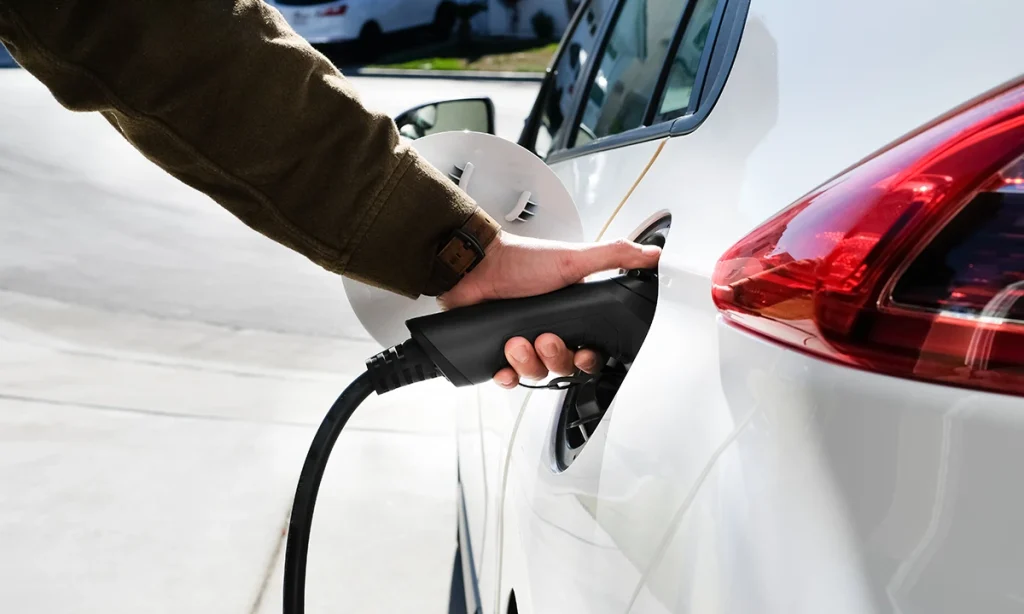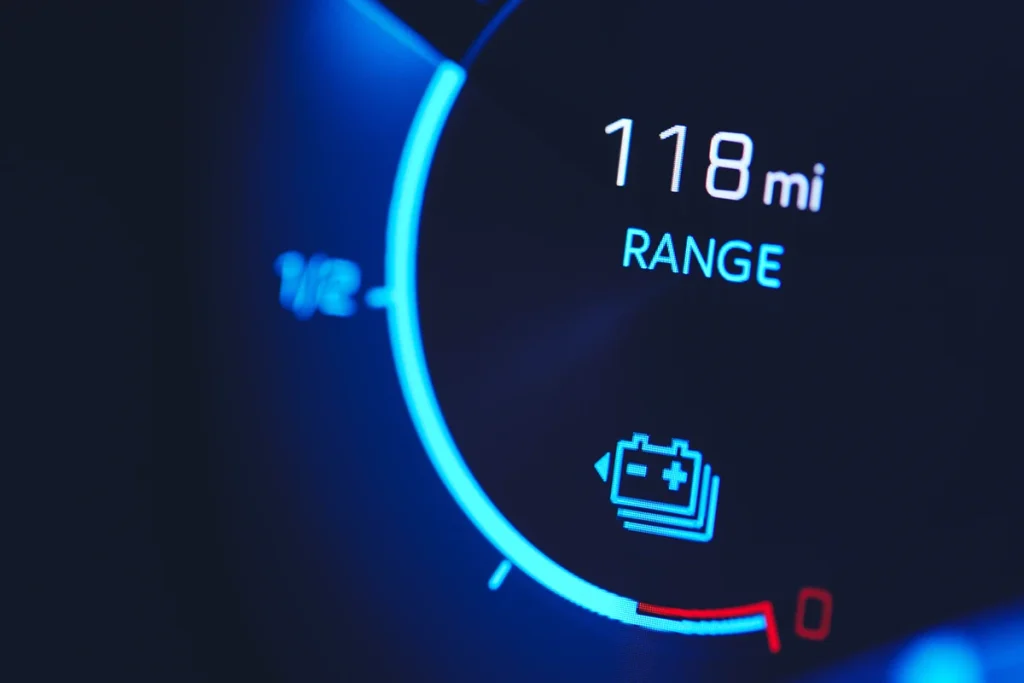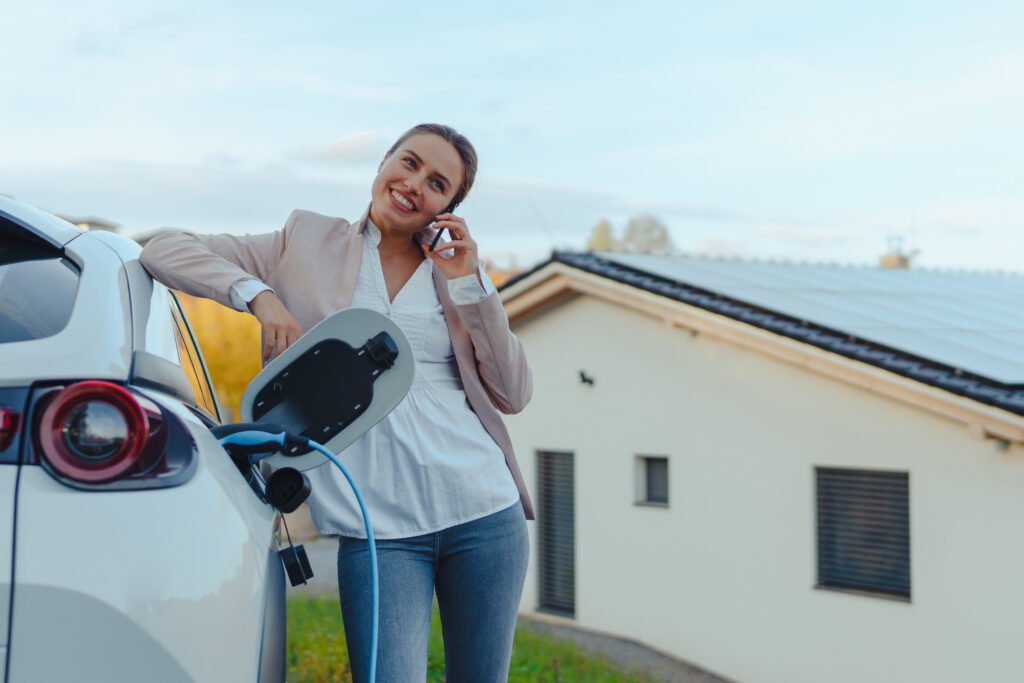Are you curious about how much it will cost to charge your electric car? If so, you’re not alone. With the rising popularity of electric vehicles comes an increased interest in understanding the various expenses associated with purchasing and operating them.
In this blog post, we’ll explore the costs associated with charging an electric vehicle and provide helpful tips on how to make owning one more affordable.
Whether you are just exploring owning an electric car or already have one in your garage, this comprehensive guide can help inform your decision-making process regarding charging your vehicle. Keep reading to learn all about the cost of charging an EV!
Overview of the Various Charging Options for Electric Cars
Charging your electric car depends on the type of charger you use. There are three main types of charging: Level 1, Level 2, and DC Fast Charging (DCFC). Let’s examine each in turn.
Level 1 Charging
Level 1 charging is the slowest and most affordable method, but it can still be effective for drivers who only need a small daily electricity boost. A standard wall outlet provides 120 volts of electrical power, translating to 3.5–6.5 miles per hour of charging time.
It’s ideal for plug-in hybrid electric cars with smaller batteries or battery-electric car owners who don’t travel far daily.
To take advantage of Level 1 charging, you’ll need sufficient time to wait while your car charges up – overnight charging is ideal if you’re not in a hurry!
Level 2 Charging
Level 2 charging is the most popular and efficient way to charge an electric car. It requires installing electric vehicle supply equipment (EVSE), which delivers 240-volt, more electricity than a standard 120-volt wall outlet.
As such, it can recharge your car’s battery significantly faster, typically in 3 to 8 hours, depending on the model.
Direct Current Fast Charging (DCFC)
DC fast charging is one of the fastest ways to charge an electric car, but it is unsuitable for home use. It requires a 480-volt connection and typically comes with a CHAdeMO, Combined Charging System (Combo), or Tesla connector system.
Depending on battery type, charger configuration, and circuit capacity, DC fast charging can add up to 10 miles of range per minute of charging time.
Overview Of Electric Car Charging Costs
When it comes to owning an electric car, one of the most important considerations is the cost of charging. Generally speaking, electricity costs less than gasoline or diesel fuel, and you don’t have to pay for oil changes or other maintenance related to a combustion engine.
The average national cost of charging an electric car for residential use is about $0.13 per kilowatt-hour (kWh). In comparison, the average price of gasoline in the US is currently around $2.20 per gallon.
Depending on your location and electricity rates, charging an electric car costs less than fueling a traditional one. However, several factors will still affect how much you pay to keep your electric car powered up.
5 main Factors Affecting the Cost of Charging Electric Car
1. Electricity Bills and Rates
Electricity bills and rates are among the most significant factors determining electric car charging costs. Depending on where you live, electricity rates can vary dramatically from one place to another.
For example, the electricity rate is about 16 cents per kilowatt-hour (kWh) in California, while it’s just 7.5 cents per kWh in Louisiana so the charging cost will be higher in California than in Louisiana. Check your local electricity rates before deciding on an electric car to ensure you’re not over.
Furthermore, depending on your providers, certain plans or special deals may be available, such as time-of-use tariffs or low-cost off-peak electricity. If you are considering an electric car, checking your electricity bills and rates is important to ensure that charging costs will be affordable.
Certain incentives, such as Government Grants, may also help reduce the cost of charging your vehicle. Ultimately, being aware of these factors can help you save money, in the long run, to keep your electric car charged and ready to go.
2. Type of charger
The type of charger you use for your electric car can have a significant impact on your charging costs. Three main types of chargers are available: Level 1, Level 2, and DC Fast Chargers.
Level 1 chargers plug into standard 120-volt outlets and charge an electric vehicle for 8-20 hours. They’re usually the most affordable option but also the slowest.
Level 2 chargers are 240-volt outlets and can charge an electric vehicle in 4-6 hours, twice as fast as Level 1. However, they tend to be more expensive than Level 1 chargers.
Finally, DC Fast Chargers use a direct current (DC) to charge an electric vehicle in less than 30 minutes. They are the most expensive option, but also the fastest.
So, depending on your budget and needs, the type of charger you use can have a significant impact on charging costs.
3. Cost of Charger Installation at Home
The installation of a charger for an electric car at home can also have an impact on the cost of charging. Depending on the type of charger and wiring required, professional installation costs can vary from a few hundred to several thousand dollars.
It’s important to note that certain areas may require permits or additional paperwork before installing a charge point, so this should be considered when determining the cost of charger installation at home.
Additionally, some providers offer special incentives, such as free installation or lower rates for electric vehicle owners, that could help offset costs.
On the other hand, self-installation is also an option if you have the basic knowledge and tools required for wiring. This could result in significant savings compared to having a professional install the charger for you, but it is important to ensure that all safety protocols are followed, and the installation is done correctly.
4. Battery size
The size of the battery in an electric car is one of the most important factors to consider when it comes to cost.
Bigger batteries will require more electricity, increasing charging costs compared to smaller ones. On the other hand, bigger batteries will also offer more range and power. So it’s important to consider which size battery suits your needs.
Generally, the larger the battery capacity in an electric car, the higher the charging cost. For example, a Tesla Model S with a 75 kWh battery has about 33% more range than a 60 kWh Model S, but the 75 kWh battery will cost more to charge.
Interestingly, bigger batteries can also be cheaper in the long run due to their efficiency and longevity. For example, driving frequently or over longer distances may be worth investing in a bigger battery with higher capacity and better performance. So while battery size affects costs, it also merits consideration when purchasing your electric car.
5. Distance-driven and Driving habits
The distance driven, and driving habits of an electric car owner can also affect charging costs. If you use your electric vehicle for short distances or infrequently, then charging costs will be lower than if you use it for long or frequent trips.
Similarly, the more efficient drivers are with their acceleration and braking, the less electricity will be used and the lower their costs will be.
Five Amazing Tips to Save Money on Charging Your Electric Car
1.Potential Rebates, Discounts, Or Credits Available For Charging An Electric Car
Governments and utilities often provide incentives to help reduce the cost of charging an electric car. Check with your local utility or state energy office to see what rebates or credits may be available in your area.
2.Maximizing The Use Of Off-Peak Charging
Consider using off-peak charging to get the most out of your electric car. This strategy means charging your car when electricity rates are lower, such as at night or on weekends.
3.Take Advantage Of Public Charging Stations
Many cities and towns have public charging stations that offer electricity at a reduced rate compared to home charging. Look for these stations in parking lots and other areas where you can charge your car more cheaply than from your outlet.
4.Be Aware Of Your Car’s Battery Capacity
Different models of electric cars have different battery capacities, which affects the amount of electricity needed to fully charge the battery. Knowing your car’s battery capacity can help you determine how much it will cost to charge it each time.
5.Purchase An Electric Vehicle Charger
Investing in an electric vehicle charger can reduce charging costs over time since you’ll easily take advantage of off-peak rates and other discounts. Most chargers come with a 120V or 240V plug, so check what type your car requires before purchasing.
FAQs
How much does charging an electric car for 300 miles cost?
The cost of charging an electric car for 300 miles will depend on several factors, including the type of charger used, battery capacity, electricity rates in the area, and more. Generally speaking, the average cost to charge a car for 300 miles is around $10-15.
Are public charging stations cheaper than home chargers?
In most cases, public charging stations are cheaper than home chargers due to discounts or incentives offered by the provider. However, comparing provider rates is important before deciding where to charge your electric car.
Can I install an electric vehicle charger myself?
You can self-install an electric vehicle charger with the right tools and knowledge. However, following safety protocols and ensuring the installation is done correctly is important. You should also check for any permits or paperwork required in your area before installing a charge point.
How much does charging an electric car cost per mile?
Generally speaking, the average cost to charge a car per mile is around $0.03-0.05. However, this can vary depending on where you are located and the type of charger you are using. You can calculate your exact cost per mile by considering the above variables.
Can you plug an electric car into a regular outlet?
Sometimes, it is possible to plug an electric car into a regular outlet. However, this is not recommended as the outlet may not be able to supply enough electricity for the car’s needs. Additionally, charging times can be significantly longer when using a standard wall outlet. It is best to use an electric vehicle charger for optimal charging results.
Is charging EVs at home cheaper?
In most cases, charging an EV at home is cheaper than using a public charger. This is because you will have access to cheaper electricity rates and more control over when you charge your car, such as taking advantage of off-peak rates. Many electric vehicle chargers include free or discounted installations and longer warranties.
Conclusion
The cost of charging an electric car depends on personal factors and regional pricing. However, with a few simple steps like home charging, careful tracking of electricity consumption, and optimizing your daily routes, you can save money and reduce the overall cost. Investment in public charging infrastructure is also essential to enable EV drivers to conveniently charge their vehicles. By being mindful of your charging habits and making smart decisions, you can ensure that your electric car charging costs remain low while helping make the world greener.


